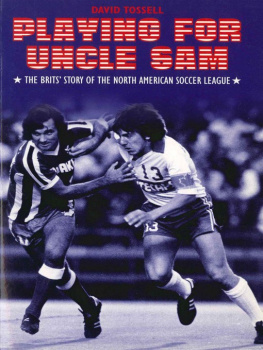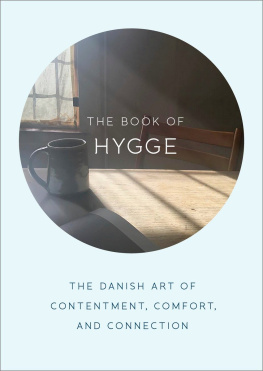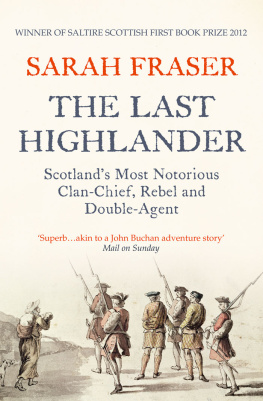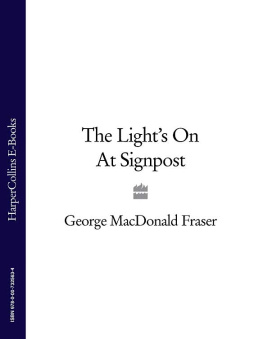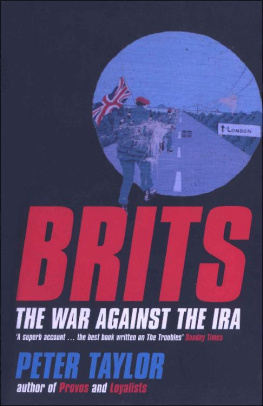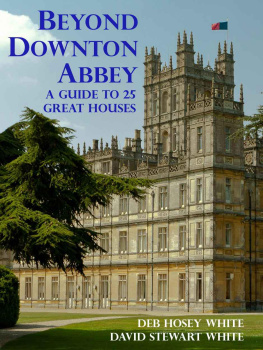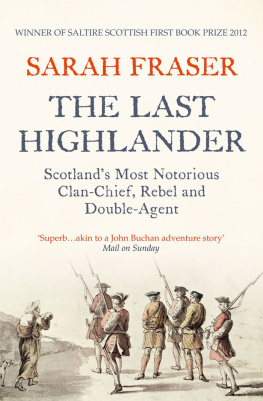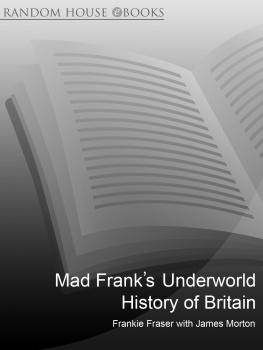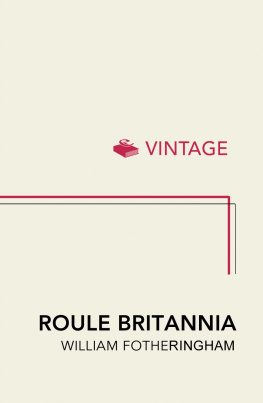Stuff Brits Like

FRASER McALPINE
Stuff BRITS Like
A Guide to Whats Great About Great Britain

First published by
Nicholas Brealey Publishing in 2015
35 Spafield Street | 20 Park Plaza |
Clerkenwell, London | Boston |
EC1R 4QB, UK | MA 02116, USA |
Tel: +44 (0)20 7239 0360 | Tel: (888) BREALEY |
Fax: +44 (0)20 7239 0370 | Fax: (617) 523 3708 |
www.nicholasbrealey.com
Fraser McAlpine 2015
The right of Fraser McAlpine to be identified as the author of this work has been asserted in accordance with the Copyright, Designs and Patents Act 1988.
ISBN: 978-1-85788-634-4
eISBN: 978-1-85788-977-2
British Library Cataloguing in Publication Data
A catalogue record for this book is available from the British Library.
All rights reserved. No part of this publication may be reproduced, stored in a retrieval system, or transmitted, in any form or by any means, electronic, mechanical, photocopying, recording and/or otherwise without the prior written permission of the publishers. This book may not be lent, resold, hired out or otherwise disposed of by way of trade in any form, binding or cover other than that in which it is published, without the prior consent of the publishers.
Cover art: Brtish Flag Andrey_Kuzmin / Shutterstock; English Bulldog Eric Isselee / Shutterstock; Crown Katsiaryna Pleshakova / Shutterstock.
Cover design by Diana Kolsky.
Interior text design by Ellen Cipriano.
Interior images by Fraser McAlpine.
Printed in the UK by Clays Ltd, St Ives plc.
Contents
Introduction
Let us start this preposterous journey in the most British way imaginable: with a series of meandering apologies and caveats. I dont know what it is about a book like this, but it seems you cant make huge, sweeping, lawn-mower generalizations about the likes and loves of an entire nation without slicing up the odd precious and unique orchid here and there, and for that, I am truly sorry.
It would probably have been easier to write a book called Stuff Brits Dont Like. That would have taken no time to compile and run to several volumes, such is the national zeal for complaining and taking things to task, but its not as if the Internet is short of people showing their displeasure, so its probably best to leave them to it.
And while were shutting doors in peoples faces, this book can only be a personal journey. It wasnt subject to a public vote and there wont be a chance to suggest subsequent chapters. People born and bred in the British Isles wont always recognize themselves on every page; there will be lots of points along the way where, if this were a blog, the comments section would blaze with outrage and correction (see: Pedantry). But thats because one book cannot hope to convey the full range of enthusiasms in a nation as endlessly and joyfully provincial as the United Kingdom.
Heck, I cant even get them to agree on a list of favourite movies (excluding Star Wars, which is, ah, universal). So Ive picked just five popular cinematic experiences, the ones that say something about how British people like to think about themselves. That is, if they would ever settle down and think of themselves as British in the first place.
By which I mean we need to get our definitions straight. For the purposes of brevity, if not painstaking accuracy, Britain and the United Kingdom have been used interchangeably to describe the same place (the full title is the United Kingdom of Great Britain and Northern Ireland). However, the United Kingdom is made up of four countriesEngland, Scotland, Wales and Northern Irelandand Cornwall, which does not currently have nation status (its actually a duchy). The Cornish have been identified by the European Union as a recognized minority; they are, in other words, their own people.
Then there are the island communities: the Isles of Scilly, the Orkneys, the Shetlands, the Isle of Wight and so on. On some islands cars are welcome, and on others they are not allowed and the taxis all float. This must make watching Top Gear there an entirely different experience from what it is in landlocked Birmingham. So again, sweeping generalizations are hard to pull off.
Also, Britain and England are so often conflated that Welsh, Scottish and Northern Irish (and Cornish) residents tend to feel left out. Make a list of British things that are principally English things and youre sure to get on someones nerves.
Then again (again), you cant ignore the English either, not least because they made such a fuss about being in charge of everything in the first place. But which England? The north is a very different place from the south. As is the east from the west. And thats before you consider the dividing influence of classstill a hugely influential factor in British tastesand the various experiences of people from different ethnic groups too.
In fact, the only thing British people will definitely all agree on with regard to this book is that it is hugely flawed in almost every respect. I can only offer sympathy with that view, and my humble apologies. Ideally a balance can be struck between compiling the common clichs of bowler hats and stiff upper lips and writing a huge list of things that everyone likes, delivered as if no one has ever noticed them, like saying, Hey, this oxygen stuff isnt bad, is it?
Everything else, bar an eccentric glossary at the end, is yours to puzzle over and investigate further. Good luck!
FRASER McALPINE, CORNWALL, 2015
Pedantry
Lets be honest, we all knew this was going to be the first chapter. The British have many international reputations to uphold, but the most fondly held is that of the uptight gentleman in an immaculate suit waiting politely for his turn to explain that youve just done something wrong. Even in the act of putting together ideas for a book about things that British people tend to enjoynot a controversial or damning themeI started to worry about the kindly meant corrections, the outrage at having left something out. You know, the pedants revolt.
Now Im fretting that Ive put the apostrophe in the wrong place just there. Do I mean its a revolt of a single pedant or a group of pedants? Does it belong to them? Do people get that the phrase is a pun on the Peasants Revolt of 1381? Should I explain that or does it ruin the joke? Its all very stressful.
Theres also the fact that the only people who refer to the Brits as the Brits are not Brits. Regional pride runs strong and deep in the United Kingdom, a state of affairs that is only intensified by the fragmented nature of Britain as a combined nation. As theres a certain amount of cultural antagonism between the five nationalities involvedor, more accurately, between the other four nationalities and Englandany reference to British people will draw the Pavlovian response that Britain is not England, that the two terms are not interchangeable. And thats before weve even started to take into account the significant differences between individual counties, districts, and villages, some of which really do not get on well.
You can pin this intense desire for subjective accuracy down to a need to create order out of chaosusing unimprovably impatient phrases like Why dont you just... or Surely youd be better off... as a prefacebut the British and their high standards manage to find chaos everywhere, even in places that look pretty ordered already, thank you very much.
Next page

